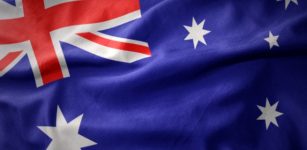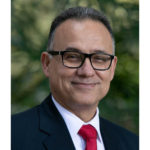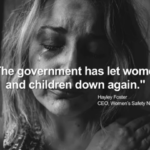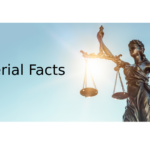Inspirational Australian Lawyers

Law has traditionally been the domain of those from relatively privileged backgrounds.
But there are some individuals who have broken the mould of the stereotypical lawyer – overcoming discrimination, adversity and extreme poverty to become some of the most respected legal professionals in Australia.
Here we tell the stories of five inspirational Australian lawyers who have made invaluable contributions to the legal profession, despite experiencing hardship during their lives.
1. Judge Bob Bellear – Australia’s First Aboriginal Judge
Bob Bellear is Australia’s first Aboriginal judge – making the high echelons of the legal profession in a country where our indigenous population is adversely overrepresented in the criminal justice system.
Judge Bellear grew up as one of nine children in country NSW. Despite leaving school early to obtain employment, he found it incredibly difficult to get paid work due to widespread discrimination against Indigenous Australians in his region. Eventually, Bellear joined the Royal Australian Navy, gradually rising through the ranks.
In the 1970s, Bellear became active within the Redfern Aboriginal community – establishing the Aboriginal Housing Corporation in 1972, and serving as a director of the Aboriginal Medical Service and Aboriginal Legal Service.
Bellear was inspired to study law due to his personal experiences with police brutality, and in 1972, aged 28, he completed his Higher School Certificate. He went on to study law at the University of New South Wales, being admitted as a barrister in 1979.
He gained a reputation as a fiece advocate, representing many Aboriginal defendants and playing a key role as assisting counsel in the Royal Commission into Aboriginal Deaths in Custody. Despite his busy work schedule, Bellear was renowned for inspiring and helping other Indigenous people to become lawyers.
Bellear was appointed a District Court Judge in 1996. He continued in this role until his untimely death, at the age of 60, due to an asbestos-related illness.
2. Matthew Laffan – Advocate for the Disabled
Working as a lawyer is never easy – and it is even more difficult for those who suffer from crippling disabilities.
But this didn’t stop Sydney lawyer Matthew Laffan from becoming one of the most dedicated, fair and respected professionals around.
Laffan suffered from diastrophic dysplasia – a genetic disorder which twisted his spine, affected his breathing and rendered him wheelchair bound.
Yet despite battling the condition, Laffan managed to complete a law degree at Sydney University – going on to become a prominent lawyer at the Director of Public Prosecutions; one who was equally respected by his fellow prosecutors and defence lawyers who had the pleasure of dealing with him in court.
Laffan campaigned fiercely for the rights of disabled people – and is remembered by his colleagues as a ‘passionate advocate of social justice.’
Sadly, Laffan passed away aged 38 after a difficult two-month battle with his illness.
Following his death, many prominent legal figures reflected on Laffan’s contributions to the profession, with former NSW DPP Nicholas Cowdery noting,
‘Matt was intelligent, quick-witted, industrious and possessed with both a keen sense of justice and an appreciation of the pressures that could lead to wrongdoing.’
3. Ada Evans – Australia’s First Female Barrister
Although women now comprise the bulk of law graduates in Australia, there was once a time when law was dominated by men. Sydney woman Ada Evans was one of the first females to break that tradition.
Born in England, Evans immigrated to Australia in her early teenage years and attended Sydney Girls’ High School.
She completed a Bachelor of Arts at the University of Sydney, and went on to enrol in a law degree. Because women were not allowed to study law at that time, she was only able to achieve this feat because the Dean of the Law School was away. Upon his return, the Dean tried to persuade Evans to abandon her degree and enrol in medicine instead.
The determined student would do nothing of the sought, graduating with a Bachelor of Laws in 1902.
Women lawyers were virtually unheard of at the time, and Evans faced many struggles as a member of the legal profession. Upon applying for admission to the Bar, she was rejected solely because of her gender.
Eventually, the laws were changed and Evans became the first woman to be admitted to the New South Wales Bar in 1921. But due to health problems and family commitments, Evans ultimately decided not to practise law.
In 1998, a barristers’ chambers named ‘Ada Evans Chambers’ was opened in the Sydney CBD in her honour.
4. Heather Stokes – Australia’s First Transgender Barrister
Accomplished criminal law barrister, Heather Stokes, was born David Stokes – but after leading a double life for several decades, Stokes made the life-changing decision in 2012 to transition into a woman.
Coming out as transgender was a difficult task for Heather, who was known in the Adelaide legal community as ‘David’ – but in an inspirational interview following her transition, Heather described how the community rallied around her after the surgery – with the Acting Chief Judge of the District Court even sending out a memo to his fellow judges advising them to address her as ‘Ms. Stokes.’
Of course, the change was not without its adversities. In the early days, Heather described how some of her colleagues expressed concern about how the transition would impact her practice – but she remained strong-willed and ignored those remarks.
Thankfully, scores of high profile cases have kept rolling through Heather’s doors – her first post-transition client was Kelly Lee Pearman, who was convicted of murdering Adelaide mother Karen Hodgson while committing an armed robbery.
5. Deng Thiak Adut – Child Soldier Turned Lawyer
Deng Thiak Adut’s story is truly inspiring – born and raised in Sudan, he was forcibly removed from his parents at the age of six and trained as a child soldier; fighting brutal battles using dangerous weapons including AK-47 assault rifles.
As a young child, Adut was shot at least twice as he fought in the Second Sudanese Civil War.
But he remained hopeful of a better future, and was eventually smuggled into Kenya, before making the journey to Australia in 1998, aged 15.
Adut arrived in our country with little more than the clothes on his back – unable to read or write English. With barely a dollar to his name, Adut was forced to live in his car during his early days in Australia.
Yet despite these adversities, Adut was determined to succeed, building his language skills before enrolling in a law degree at Western Sydney University.
Now, Adut is a fully fledged lawyer practising out of his Blacktown office – but although he has turned his life around, he has not forgotten his humble beginnings and now uses his legal skills to help the refugee community.






